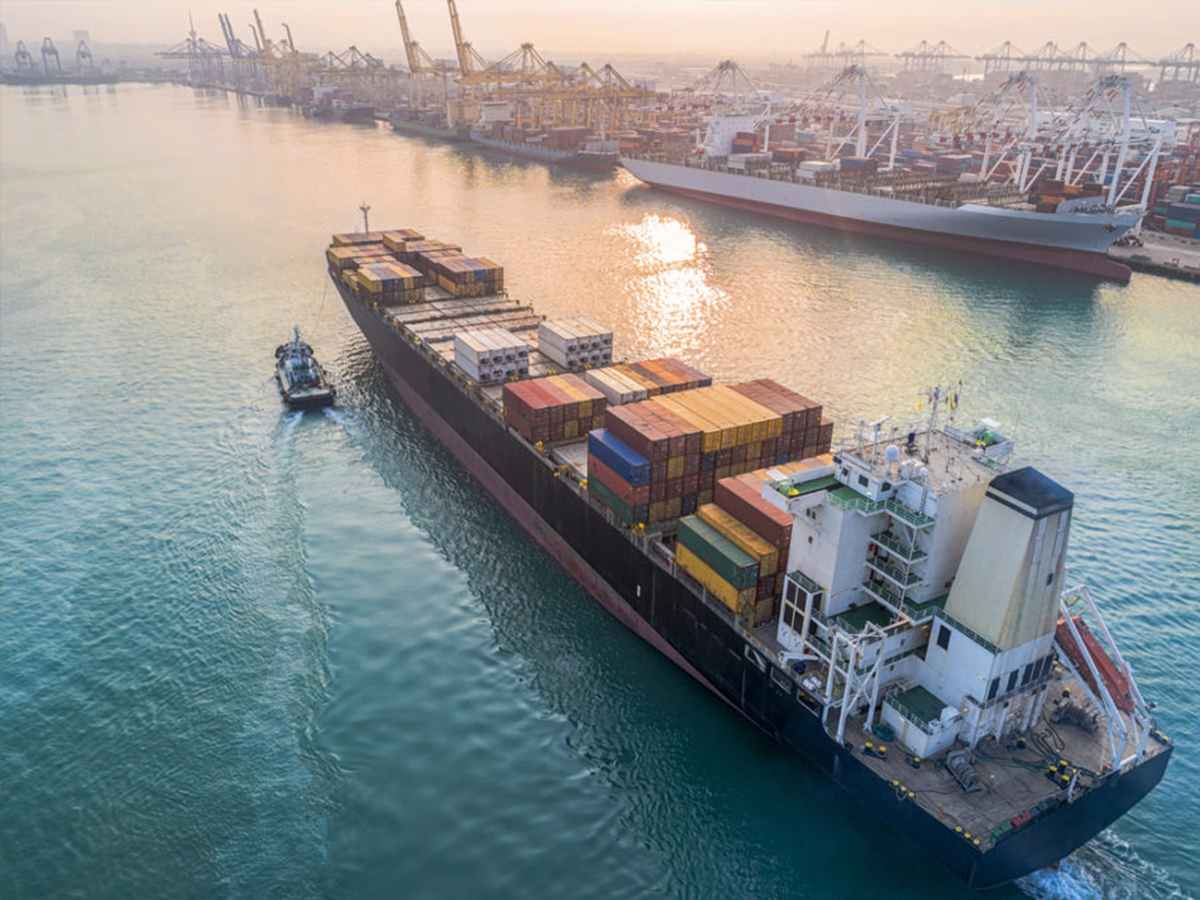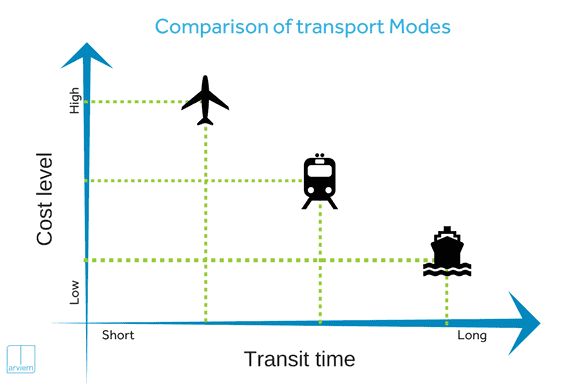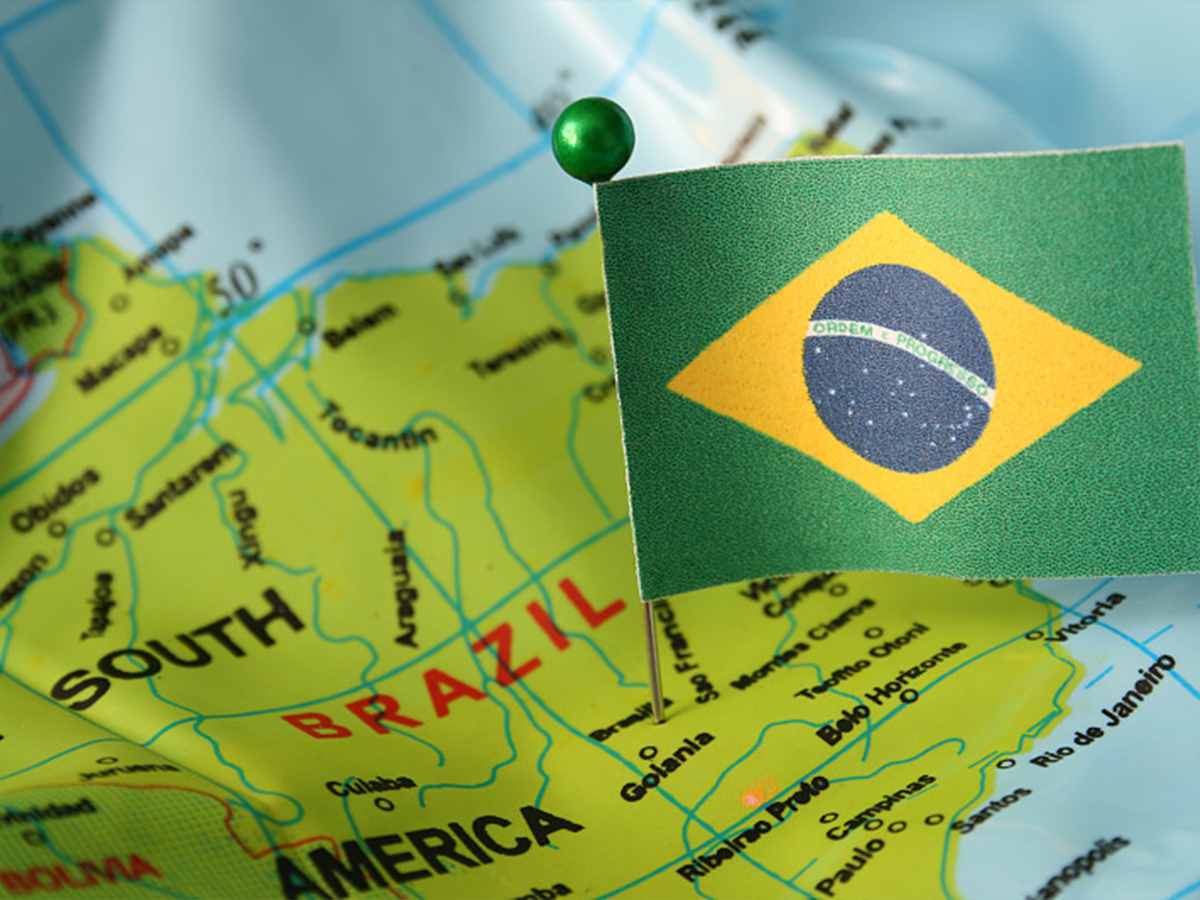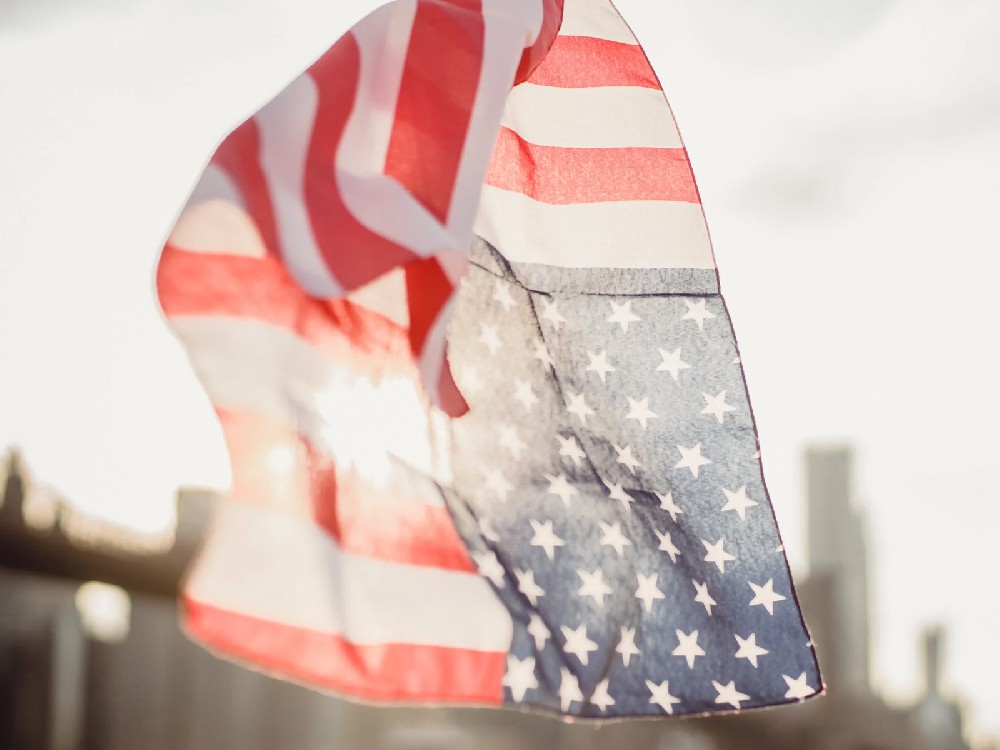The trade cooperation between China and Brazil holds significant strategic importance, playing a crucial role in the economic development of both countries and global trade. China has a robust manufacturing industry as one of the world's largest exporters. Brazil, one of the largest economies in South America, boasts vast market demand and abundant resources. To support economic cooperation between the two nations, shipping goods from China to Brazil becomes an indispensable link in the trade chain. This article explores the shipping methods from China to Brazil, to help you understand and choose the appropriate transportation solutions, enhance transportation efficiency, and facilitate smooth progress in trade cooperation.
Methods of Shipping from China to Brazil
Here is a brief overview of the different methods available for shipping from China to Brazil, which include ocean freight, air freight, multimodal transport, and land transport:
Ocean Freight
Ocean freight is the most common and cost-effective shipping method from China to Brazil, particularly suitable for large quantities of goods and longer transit times.
You can load your goods into containers and transport them via ocean vessels.
Depending on the volume and weight of your goods, you can opt for Full Container Load (FCL) or Less than Container Load (LCL) shipments.
Major ocean shipping routes include routes between Chinese ports (such as Shanghai, Ningbo, Shenzhen) and Brazilian ports (such as São Paulo, Rio de Janeiro).
Air Freight
Air freight is a fast transportation method for urgent goods and smaller quantities.
Through air cargo transportation, goods can reach Brazil in a shorter period, but the freight cost is higher.
Air freight is suitable for goods that require fast delivery or special types of cargo.
Major international airports in China, such as Beijing Capital International Airport and Shanghai Pudong International Airport, can serve as departure points for goods. In contrast, major international airports in Brazil, such as São Paulo-Guarulhos International Airport and Rio de Janeiro-Galeão International Airport, can serve as destination points for goods.
Multimodal Transport
Multimodal transport combines different modes of transportation, such as land, ocean, and air, to provide flexible and comprehensive cargo transportation solutions.
You can transport your goods by land to Chinese ports, then by ocean or air to ports in Brazil, and finally, by land again to the destination.
This method offers greater flexibility and transportation options for different geographical regions.
Another option is to transport goods by land to Chinese ports, then by ocean to Brazilian ports, and finally, by land to the destination.
Rail Transport
If there is a railway connection between the origin and destination of your goods, you can also consider rail transport.
Rail transport is suitable for bulk goods and long-distance shipments, offering lower costs and shorter transit times.
When choosing the appropriate transportation method, specific factors must be considered, such as the type of goods, volume, weight, budget, transportation time requirements, and geographical distance between the origin and destination. Collaborating with professional freight agents like JIKE Logistics can assist you in selecting the most suitable transportation method and arranging related logistics services.
What are the shipping routes from China to Brazil?
There are several common shipping routes connecting major ports in China and Brazil. Here are some examples:
Shanghai Port (China) - Rio de Janeiro Port (Brazil): This route connects Shanghai Port, one of the largest ports in China, with Rio de Janeiro Port, one of the most important ports in Brazil. It is one of the primary shipping routes between China and Brazil, providing a vital maritime channel for bilateral trade.
Ningbo Port (China) - Santos Port (Brazil): Ningbo Port is an important port along the East China Sea coast, while Santos Port is one of the largest ports in Brazil. This route connects China's manufacturing base with Brazil's commercial center, serving as a crucial transportation channel for trade between the two countries.
Shenzhen Port (China) - Itajaí Port (Brazil): Shenzhen Port, located in Guangdong Province in southern China, is a significant port in the region, while Itajaí Port is an important port in northern Brazil. This route connects China's manufacturing hub with the northern region of Brazil, offering convenient shipping options for bilateral trade.
Dalian Port (China) - Porto Alegre Port (Brazil): Dalian Port is a vital port in northeastern China, while Porto Alegre Port is located in northern Brazil. This route connects the northeastern region of China with the northern region of Brazil, providing a convenient maritime route for trade between the two countries.
In addition to the mentioned routes, other shipping routes connect major ports in China and Brazil. The specific route selection depends on the destination of the goods and trade requirements. As a freight agent expert, JIKE Logistics can provide comprehensive logistics services, including route selection, cargo transportation, and customs clearance. Whether you need to transport goods from China to Brazil via any of these routes, you can contact us anytime for inquiries, and we will provide you with accurate transportation solutions and quotations.

How much does it cost to ship a full container load (FCL) from China to Brazil?
Based on general market trends and JIKE's experience, here is an approximate range of FCL shipping rates, provided for reference:
20-foot container cost range: Approximately USD 2,000 to USD 4,000, with the actual cost depending on the weight, the volume of the goods, and the distance between the port of origin and the port of destination.
40-foot container cost range: Approximately USD 3,000 to USD 6,000, with the actual cost depending on the weight, the volume of the goods, and the distance between the port of origin and the port of destination.
Note: These rates are provided for reference purposes only and do not represent the actual costs. The actual FCL shipping rates can be influenced by various factors, including but not limited to the nature and value of the goods, the distance between the port of origin and the port of destination, fuel prices, and pricing strategies of shipping companies.
To obtain more accurate data and specific FCL shipping rates, please get in touch with JIKE Logistics with detailed information about your goods and the port of origin and port of destination. We will provide you with a specific quotation and transportation plan.
How much does it cost to ship LCL from China to Brazil?
Based on market trends and our experience, here is an approximate range of LCL shipping costs from China to Brazil, provided for reference:
LCL shipping costs are calculated based on the volume or weight of the goods, usually measured in cubic meters (CBM) or kilograms (KG). Here is an approximate range of LCL shipping costs:
LCL shipping cost range (calculated per cubic meter): Approximately USD 100 to USD 300, with the actual cost depending on the volume of the goods, the distance between the origin and destination ports, and the pricing strategy of the shipping company.
LCL shipping cost range (calculated per kilogram): Approximately USD 1 to USD 5, with the actual cost depending on the weight of the goods, the distance between the origin and destination ports, and the pricing strategy of the shipping company.
Note: these costs are provided for reference purposes only and do not represent the actual fees. The actual LCL shipping cost can be influenced by various factors, including but not limited to the nature and value of the goods, the distance between the origin and destination ports, fuel prices, and pricing strategies of shipping companies.
To obtain more accurate data and specific LCL shipping costs, please contact JIKE Logistics with detailed information about your goods and the origin and destination ports. We will provide you with a specific quotation and transportation plan.

How much does it cost to ship from China to Brazil by air?
Based on market conditions, here is a rough range of air freight costs from China to Brazil, provided for reference:
Cost Range (per kilogram): Approximately USD 2 to USD 10.
Cost Range (per cubic meter): Approximately USD 200 to USD 800.
Note: these costs are provided for reference only and may not represent the actual expenses. The actual cost of air freight can vary due to factors such as the nature of the goods, distance of the route, fluctuations in fuel prices, and pricing strategies of airlines.
To obtain more accurate data and specific cost estimates for air freight, please get in touch with a freight forwarder or airline and provide detailed information about your goods and the airports of departure and destination. They will be able to provide you with specific quotations and transportation solutions based on the latest market information and pricing policies.
How long does shipping from China to Brazil take?
Ocean Freight: The shipping time from major ports in China (such as Shanghai, Ningbo) to major ports in Brazil (such as São Paulo, Rio de Janeiro) is usually around 30 to 45 days, with the actual time affected by factors such as route selection, port handling time, and sea conditions.
Air Freight: The air shipping time from major airports in China (such as Beijing, Shanghai) to major airports in Brazil (such as São Paulo, Rio de Janeiro) is typically around 5 to 10 days, depending on flight schedules, cargo handling time, and customs clearance procedures.
Note: these times are general estimates, and shipping times can vary due to various factors.
Therefore, when planning the transportation of your goods, it is recommended to contact JIKE Logistics with specific information about your goods and their origin and destination. We will be able to provide you with more accurate estimates of shipping time and transportation solutions.
How to ship from China to Brazil?
To ship from China to Brazil, you need to follow these steps:
Find a professional freight agent like JIKE Logistics: We will assist you in arranging the entire process of goods transportation, including shipping, customs procedures, and more.
Determine the details of the goods: Discuss the details of the goods with JIKE, including the type, size, weight, etc., so that we can provide you with accurate transportation solutions and quotations.
Provide necessary documents and licenses: Prepare and provide the necessary documents and licenses according to Brazil's import requirements, such as commercial invoices, packing lists, bills of lading, certificate of origin, licenses, etc.
Arrange goods packaging: Coordinate with JIKE regarding the packaging of the goods. We will guide you on packaging requirements and the best loading methods to ensure the safety of the goods during transportation.
Goods transportation and shipping: JIKE will select suitable shipping routes based on your requirements and the characteristics of the goods, and arrange for loading and transportation.
Customs clearance procedures: Upon the arrival of the goods in Brazil, JIKE will assist you in completing the customs clearance procedures, including submitting the necessary documents to customs and making payments to ensure legal entry of the goods into Brazil.
Delivery to the destination: Once the goods have completed the customs clearance procedures, JIKE will arrange transportation to the destination and coordinate the delivery details with you.
Throughout the process, it is important to maintain close communication with JIKE Logistics. We will provide you with the necessary guidance and support to ensure a smooth shipping and import of goods from China to Brazil.
What is the cheapest way to ship from China to Brazil?
Generally, sea freight is a relatively economical and cost-effective transportation method, especially for bulk or large-volume goods. Shipping costs by sea are typically lower than air freight costs but involve longer transit times.Here are some methods that may help reduce shipping costs:
Consolidated Container Shipping: If you have a smaller quantity of goods, consider using consolidated container services, where you share a container with other shippers to distribute the transportation costs. This is a cost-effective option suitable for smaller shipments.
Choose economical routes: When selecting a sea freight route, working with JIKE Logistics to find economical routes and shipping lines can help you obtain more competitive prices.
Plan and book in advance: Planning and booking transportation services can help you secure better prices. Early booking ensures more transportation options and opportunities to benefit from seasonal or other discount offers.
Goods packaging and loading: Effective goods packaging and loading can maximize the utilization of containers or vessels, reducing additional costs.
Note: the cheapest method may only sometimes be suitable for some types of goods and specific trade requirements. It is recommended to work with JIKE Logistics to obtain the best transportation solutions and price quotes based on your specific requirements and the characteristics of your goods. We will provide professional advice based on the details of your goods and market conditions, helping you choose the most cost-effective transportation method.
What is the fastest way to ship from China to Brazil?
The fastest way to ship from China to Brazil is usually through air freight. Air freight is a fast and efficient transportation method suitable for goods with urgent delivery requirements.Here are some key points for achieving fast shipping via air freight:
Choose direct flights: Look for direct flights to reduce transit time and the possibility of delays. Direct flights are typically faster than flights with layovers.
Book in advance: Booking air freight services early ensures you secure space and priority on flights, allowing for more scheduling flexibility.
Prepare and have complete documentation: Ensure your goods' documents and licenses are for smooth clearance through customs and security checks.
Work with a professional logistics company: Collaborating with an experienced freight forwarder or logistics company can provide professional advice and assistance. They are familiar with air freight operations and procedures and can offer the best fast shipping solutions.
It's important to note that while air freight is the fastest option, it is often more expensive. Therefore, when choosing a transportation method, you must consider your goods' urgency and budget. If your goods are not time-sensitive, consider other more economical options such as sea freight or land transportation. Partnering with JIKE Logistics can help you obtain the best shipping solutions and price quotes.

Common International Trade Terms when Shipping from China to Brazil
In the international trade process of shipping from China to Brazil, here are some common international trade terms:
FOB (Free On Board): FOB refers to the seller delivering the goods to the designated port and bearing all costs and risks until the goods are loaded onto the ship. Once the goods are loaded, the buyer is responsible for further costs and risks.
CIF (Cost, Insurance, and Freight): CIF means the seller is responsible for paying the goods' cost, insurance, and freight until they are delivered to the destination port. The buyer is responsible for customs clearance and further costs at the destination port.
EXW (Ex Works): EXW refers to the seller making the goods available for the buyer to pick up at the seller's factory or designated location.
These are just some common international trade terms; additional terms and documents may be involved in the actual trade process. When engaging in international goods transportation, partnering with JIKE Logistics can help explain and handle matters related to trade terms, ensuring smooth customs clearance and transportation processes.
Customs Duties and Procedures
When importing goods into Brazil, customs duties and procedures are important requirements to comply with. Here is some basic information about customs duties and procedures for importing goods into Brazil:
Customs Duties: Brazil imposes customs duties on imported goods, and the duty rates vary depending on the category of goods and the country of import. You need to know the customs duty rate for the imported goods and calculate the amount to be paid based on the value of the goods. Customs duty rates can be obtained from the official website of relevant Brazilian government agencies or customs departments.
Tax ID and Import License: Before importing goods into Brazil, you must register with the Brazilian Tax Authority and obtain a unique tax identification number. Additionally, depending on the nature of the goods, you may need to obtain specific import licenses or certificates. These documents can be obtained by applying to the relevant departments based on the category of goods.
Document Preparation: Importing goods requires providing a range of documents to complete customs procedures, including but not limited to commercial invoices, bills of lading, packing lists, transport insurance certificates, import licenses, etc. The preparation and accuracy of these documents are crucial for smooth customs clearance.
Customs Assessment and Inspection: Customs may assess and inspect the imported goods to verify their value, quantity, quality, and compliance. This process may include sampling inspections, document checks, and physical inspections.
Payment of Duties and Fees: Before the goods are cleared through customs, you need to pay the applicable customs duties and other possible fees, such as value-added tax, consumption tax, import processing fees, etc. These fees will be calculated based on the value of the goods and the applicable tax rates.
Note: Actual customs duties and procedures may vary depending on the type of imported goods, scale, and other factors. To ensure a smooth import process, it is recommended to collaborate with JIKE Logistics. We know Brazil's import regulations and procedures and can provide accurate guidance and assistance.
Customs Clearance Process in Brazil
The customs clearance process in Brazil involves a series of steps such as document preparation, customs declaration, and inspections. Here is an overview of the customs clearance process in Brazil:
Document Preparation:
Commercial Invoice: A commercial invoice providing detailed information about the goods, quantity, value, etc.
Bill of Lading or Airway Bill: A document that proves the goods have been loaded onto a ship or an aircraft.
Packing List: A detailed list specifying the packaging specifications and quantity of the goods.
Import License: Depending on the requirements for the category of goods, you may need to obtain specific import licenses or certificates.
Proof of Goods Value: You may need to provide documents related to the value of the goods, such as insurance policies or appraisal certificates.
2. Customs Declaration:
Register on the Brazilian Customs website and obtain a registration number.
Prepare and submit the electronic customs declaration (Declaração de Importação or DI), including information about the goods' description, quantity, value, country of origin, etc.
Pay customs duties and other relevant fees.
3. Inspection:
Brazilian customs may inspect the imported goods to verify their quantity, quality, and compliance.
Inspections can include document checks, sampling inspections, and on-site inspections.
In some cases, customs may require additional documents or proofs.
4. Completion of Customs Clearance:
Once the customs inspection and approval are completed, the goods will receive clearance and can enter Brazil.
Depending on the arrangements, the goods may need to be sorted, handed over to the carrier, or transferred to the final destination.
Note: the customs clearance process in Brazil may vary depending on the goods' nature, value, and scale. To ensure a smooth clearance process, it is advisable to collaborate with JIKE Logistics. We know Brazil's customs requirements and procedures and can provide specific guidance and assistance.
What are the prohibitions and restrictions on shipping from China to Brazil?
Brazil has implemented various prohibitions and restrictions on importing specific goods, which are important considerations for cargo transportation plans. Here are some of Brazil's import prohibitions and restrictions:
Certain agricultural and animal products: Brazil has strict import restrictions on certain agricultural and animal products. For example, meat, poultry, dairy products, fruits, vegetables, and other agricultural products must comply with the Brazilian Ministry of Agriculture requirements and the regulatory agencies for animal and plant health. Import permits are also required.
Certain chemicals and pharmaceuticals: Brazil has imposed restrictions on the import of certain chemicals and pharmaceuticals. Compliance with the regulations of the Brazilian National Health Regulatory Agency and obtaining the corresponding licenses or approval documents are required.
Weapons and military equipment: Brazil has strict control and licensing systems for the import of weapons and military equipment. Importers need to comply with the regulations of the Brazilian Ministry of Defense and the military industry department and obtain the relevant licenses and approval documents.
Cultural artwork and antiques: Brazil also has certain restrictions on the import of cultural artwork and antiques. Compliance with the regulations of the Brazilian National Institute of Historical and Artistic Heritage and relevant agencies and obtaining the corresponding permits or certificates are required.
Electronic products and communication equipment: Brazil may implement specific standards and technical requirements for certain electronic products and communication equipment. Importers are required to obtain the necessary certifications and approvals.
Note: the above list represents some common import prohibitions and restrictions in Brazil, and the actual situation may vary due to evolving regulations and policies. It is advisable to consult with Brazilian customs or JIKE Logistics for the latest import requirements and restrictions to ensure that your goods comply with the relevant regulations.
Conclusion
The diversity and complexity of shipping from China to Brazil require the consideration of multiple factors, including transportation mode, costs, time, route selection, tariffs, and customs procedures. Collaborating with JIKE Logistics in planning and executing the cargo transportation process would be a wise choice to ensure the safe and efficient transportation of goods from China to Brazil.

JIKE Logistics - Freight Forwarder from China to Brazil
As a professional freight forwarder, JIKE Logistics provides comprehensive solutions for shipping from China to Brazil. We have extensive experience and a dedicated team in cargo transportation, committed to providing high-quality services to our clients.
As a freight forwarder, we have established strong partnerships with shipping companies, airlines, and logistics providers, enabling us to offer various transportation options, including sea freight, air freight, and multimodal transportation. We will select the most suitable transportation mode and route based on your needs and the characteristics of your goods to ensure your cargo's safe and timely delivery.
Throughout the transportation process, we will track and manage the cargo, and handle the necessary document preparation, customs declaration, and clearance procedures, ensuring that your goods comply with Brazil's import requirements and smoothly pass customs inspections. We understand Brazil's tariff system and clearance procedures and maintain close cooperation with local customs authorities to ensure efficient and timely customs clearance of goods.
In addition to cargo transportation, JIKE Logistics also provides warehousing, warehouse management, and distribution services to meet our client's needs throughout the supply chain. Our aim is to provide our clients with one-stop logistics solutions, reduce logistics costs, improve transportation efficiency, and ensure the smooth circulation of goods between China and Brazil.
If you require cargo transportation services for shipping from China to Brazil, JIKE Logistics will be your reliable partner. Feel free to contact us, and our professional team will provide personalized logistics solutions and quotations to meet your needs. We look forward to working with you and providing high-quality service and support for your cargo transportation.
FAQs
| Q: How can I transport my products from China to Brazil? |
| A: To transport products from China to Brazil, you can choose different transportation modes such as sea freight, air freight, or multimodal transportation. You can collaborate with JIKE Logistics, and we will arrange a suitable transport plan for you and provide end-to-end logistics services, including goods pickup, packaging, document preparation, customs clearance, and transportation arrangement. |
| Q: What is the average freight cost from China to Brazil? |
| A: The average freight cost from China to Brazil varies depending on several factors, including the weight, volume, transportation mode, route selection, and market fluctuations of the goods. Generally, sea and air freight are relatively cost-effective, and the specific cost will be quoted based on your cargo's characteristics and requirements. The most accurate freight information can be obtained by consulting with us. |
| Q: What is the average transit time from China to Brazil? |
| A: The average transit time from China to Brazil depends on the chosen transportation mode and route, as well as the specific location of the destination. Generally, sea freight takes longer, usually from a few weeks to several months, while air freight is faster, typically taking a few days to a week. The exact transit time will vary based on the origin and destination of the goods and the selected service level. |
| Q: What is the maximum weight for air freight from China to Brazil? |
| A: The maximum weight for air freight depends on the airline's regulations and the aircraft's payload capacity. Generally, regular cargo flights can accommodate maximum cargo weights of several tens of tons. However, the maximum weight restrictions may vary depending on the chosen airline and service. |
| Q: What are the international shipping rates from China to Brazil for express couriers like DHL, FedEx, UPS, USPS, China Post, or other courier companies? |
| A: International shipping rates depend on factors such as the courier company, the weight and volume of the goods, and the destination. Different courier companies may offer different rate structures and service options. You can contact JIKE Logistics for specific shipping rate quotations. |
| Q: How is the air freight cost calculated from China to Brazil? |
A: The air freight cost from China to Brazil is usually calculated based on factors such as the weight or volume of the goods, transportation distance, and the pricing rules of the chosen airline. Generally, heavier or larger volume goods incur higher costs. You can contact JIKE Logistics for detailed cost calculations and quotations. |
| Q: How long does it take to ship goods from China to Brazil by sea? |
A: The time to ship goods from China to Brazil by sea depends on the chosen route, the distance between the origin and destination ports, and the shipping company's flight schedules and transport periods. Generally, sea freight transportation time ranges from a few weeks to several months. The specific time will vary based on the goods' origin, destination, and selected route. |
| Q: How can I reduce the shipping cost from China to Brazil? |
| A: To reduce the shipping cost from China to Brazil, consider optimizing the packaging of goods, consolidation and bulk transportation, and planning and booking. |
| Q: Why does it take so long for packages to be delivered from China to Brazil? |
| A: Packages take a long time to be delivered from China to Brazil due to factors such as long transportation distances, varying transit times based on different transportation modes, complex customs procedures, transportation demands, and market factors. |
| Q: Do I need to pay customs duties if I ship goods from China to Brazil? |
| A: Yes, when shipping goods from China to Brazil, it may be necessary to pay customs duties. Customs duties are determined based on Brazil's import regulations and tariff schedules and depend on factors such as the goods' category, value, and import policies. |
| Q: Do I need to pay taxes for items shipped from China to Brazil? |
| A: According to Brazil's import regulations, you may need to pay import duties and related taxes for items shipped from China to Brazil. The specific taxes depend on factors such as the goods' category, value, and import policies. |
| Q: Why do customs hold packages when shipped from China to Brazil? |
| A: Packages may be held by customs during the shipping process from China to Brazil due to reasons including but not limited to: failed security checks, insufficient customs declaration and clearance procedures, incomplete or incorrect documentation, import controls, and restrictions. |
| Q: What happens if you lie to customs when shipping from China to Brazil? |
| A: Lying to customs or providing false information is illegal and can have serious consequences. Suppose it is discovered that you provided false information during the cargo declaration process when shipping from China to Brazil. In that case, customs may take actions such as holding the goods, fines and penalties, and criminal liability. Therefore, honesty, accuracy, and compliance are crucial when shipping from China to Brazil during the cargo declaration process. |


Consult Our Experts